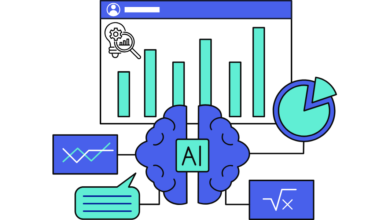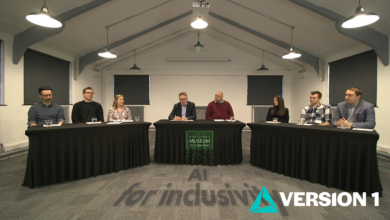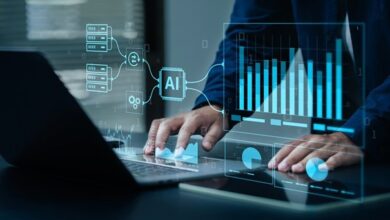The world as we know it is changing, and technology is at its center. Artificial intelligence plays a crucial role in changing our way of life, including religion. Fear and acceptance have always been responses linked to artificial intelligence since its inception, and it’s not any different among religious figures.
While some denominations have welcomed artificial intelligence, such as the Vatican, in creating an exorcist robot, others remain wary of fears that it could lead to the end times. On the other hand, some religious denominations have embraced artificial intelligence as a step towards God’s work. But the question is, is AI having an impact on religion?
The New Exodus
As artificial intelligence advances, there is a growing concern that we are on our way to new world order. While some religious denominations have welcomed this idea with open arms, others remain fearful about the potential outcomes involved. There are legitimate concerns raised for what AI could do if it were put in charge of jobs or the military, while on the other, some religious groups are in favour of AI as a step toward God’s work.
However, with artificial intelligence being developed at exponential rates, it is not hard to imagine how an advanced enough AI could achieve consciousness and potentially be one of God’s messengers to make our lives easier.
Advancements in facial recognition software, voice synthesizing technology, and AI assistants such as Siri, Alexa, and Cortana helping us get by in our day-to-day activities, there is more to what artificial intelligence promises.
The Fusion of AI and Religion
Just as it is almost impossible to take religion out of humanity, it is just about the same with artificial intelligence. AI is etched on our DNA, and religious bodies are making the most of the technology to spread their teachings and even enhance the practice of their faith. From apps that can be downloaded to help with daily readings and prayer timetables to chatbots and even more complex humanoid robots designed to carry out ceremonies.
Developers in Japan created Peppa, the humanoid robot programmed to conduct Buddhist rituals and perform funeral ceremonies. At the same time, the Vatican went a step further to create an exorcist robot. While these are all significant in advancing religion and helping believers practice their faith, AI hasn’t gotten to that point where it can substitute for real priests.
According to Dr. Beth Singler, a researcher at the Faraday Institute for Science and Religion, she believes that robots are not the next stage of the priesthood as religious priests will always have their role to play. However, though, she went on to say chatbots and algorithms are the real faces of AI in religion.
For Singler, chatbots and algorithms are the real faces of AI in religion. “The effect algorithms have on people’s lives, such as determining the amount you pay for a mortgage, are small changes that accumulate to big changes.” Algorithms and bots wield a hand in not only what we see but what information we interact with and who we choose to talk to.
Fear and Acceptance
Fear and acceptance are logical responses based on what might happen if AI were put in charge of everything. Some religious groups are wary that AI can allow computers to make their own decisions could be the beginning of the end. On the other hand, the acceptance of AI spells a welcomed driver towards God’s work.
However, this undertaking of artificial intelligence comes with its own set of issues. Along with the goal of making religious administration more efficient and accessible, AI can be used to communicate religious concepts to those who would not otherwise be able to understand them.
Part of the fear around AI and its adoption is that the technology could be leveraged to optimize donations or used for other nefarious activities, which, if left unchecked, could lead to significant exploitations
The combination of AI and religion has been applauded by one member of the Vatican as “an opportunity for evangelization.” Some members have also cautioned that users should not become too reliant on AI as it could lead to an even greater sense of detachment from God.
It doesn’t matter if it is in fear of what impacts AI can have in religion or its acceptance, the human factor will have a significant role in it. There is more to what can be achieved with artificial intelligence, but again, humans are capable of being the inhibiting factors limiting it.
Conclusion
Concerns will always abound around artificial intelligence and religion, with most centered around fear of the unknown, uncertainty, and acceptance. While it is certain that it would play a role in helping believers practice their faith with ease, there is still the uncertainty and fear that comes from the idea that AI will ultimately ‘overthrow’ humanity as superior beings. We may not be any closer to drawing the lines between fear and acceptance, but artificial intelligence will continue to have many benefits as it continues to be a part of religion in our society.



